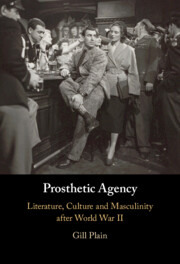Introduction
Published online by Cambridge University Press: 29 June 2023
Summary
Over the course of the masterclass in disorientation that is Henry Green’s Back (1946), the repatriated prisoner of war Charley Summers – who has lost his leg, his lover and his liberty – finds himself adrift in a world of platitudes. ‘We all of us came back to what we didn’t expect’ announces a fellow veteran, while a bereaved civilian finds consolation in newspaper psychology: ‘only the other day in my paper I read where a doctor man gave as his opinion that we were none of us normal’.4 The papers are right: neither Charley nor the civilian world he attempts to navigate are remotely ‘normal’, and by the end of the book, his combination of obsession and inarticulacy has put his job in peril. But here, too, there is a platitude waiting to be deployed. ‘To put it in a nutshell,’ announces his well-meaning employer, ‘after the bad time you’ve had, you want to marry and settle down’.5 Green’s oddly sympathetic satire equally puts the postwar in a nutshell, and in these three tropes – the uncanny transformation of the known world, the psychological damage done by war and the glib promise of idealised heteronormativity – Back diagnoses the cultural losses that demand the repair of prosthetic agency.
- Type
- Chapter
- Information
- Prosthetic AgencyLiterature, Culture and Masculinity after World War II, pp. 1 - 52Publisher: Cambridge University PressPrint publication year: 2023



